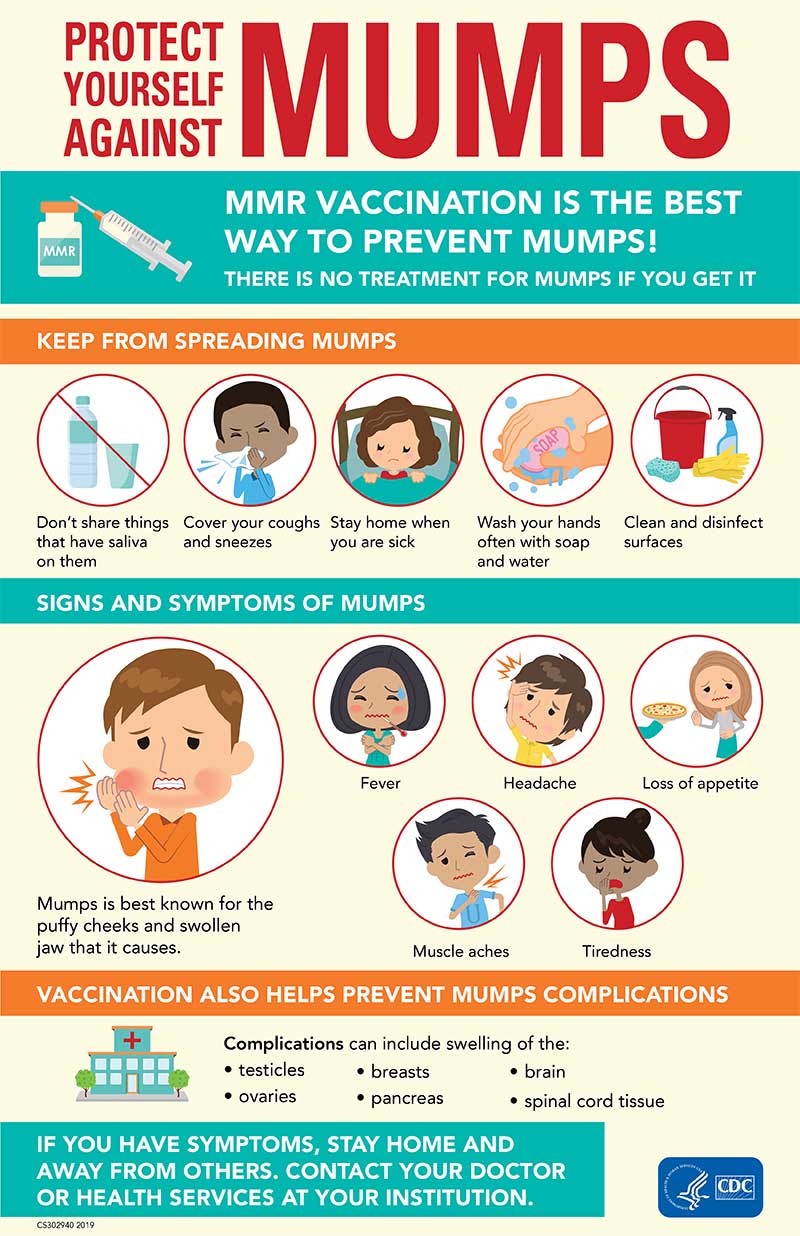Text equivalent
Protect Yourself Against Mumps
MMR vaccination is the best way to prevent mumps!
There is no treatment for mumps if you get it
[Illustration of vial labeled MMR and syringe]
Keep from spreading mumps
- Don't share things that have saliva on them [Illustration of water bottle, and cup with a red line through them indicating do not share]
- Cover your coughs and sneezes [Illustration of male sneezing into tissue]
- Stay home when you are sick [Illustration of female in bed with frown on sleeping face]
- Wash your hands often with soap and water [Illustration of hands rubbing bubbling bar of soap]
- Clean and disinfect surfaces [Illustration of bucket, sponge, cleaning spray bottle, and rubber gloves]
Signs and symptoms of mumps
Mumps is best known for the puffy cheeks and swollen jaw that it causes. [illustration of male with swollen checks and pain in jaw]
Fever [illustration of female with grimace on face, thermometer in mouth, and arms clutching shoulders for warmth]
Headache [illustration of male with grimace on face, holding head in pain]
Loss of appetite [illustration of female with grimace on face, turning down offer of pizza]
Muscle aches [illustration of male with grimace on face, holding arm in pain]
Tiredness [illustration of female yawning]
Vaccination Also Helps Prevent Mumps Complications
Complications can include swelling of the:
- Testicles
- Ovaries
- Breasts
- Pancreas
- Brain
- Spinal cord tissue
[illustration of hospital building]
If you have symptoms, stay home and away from others. Contact your doctor or health services at your institution.
Ask your student health services about where you can get vaccinated
HHS/CDC logo

